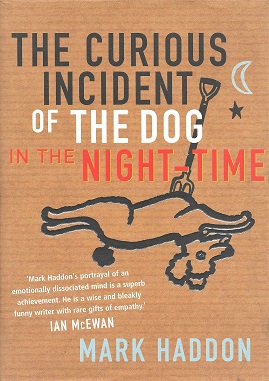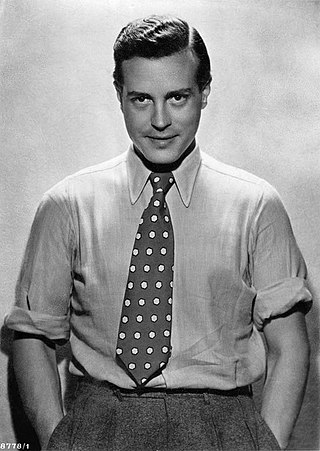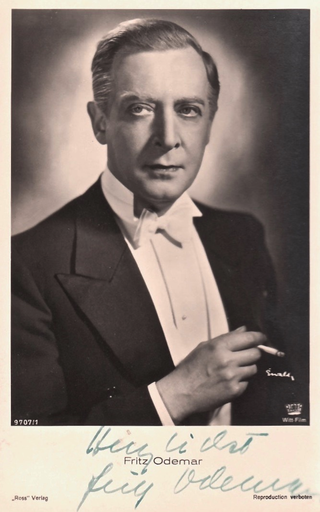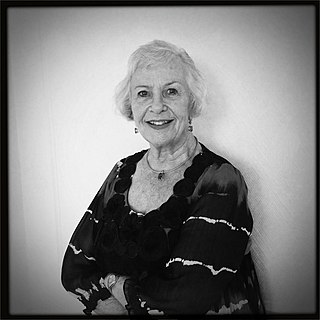
Asperger syndrome (AS), also known as Asperger's syndrome or Asperger's, is a diagnosis formerly used to describe a neurodevelopmental condition characterized by significant difficulties in social interaction and nonverbal communication, along with restricted, repetitive patterns of behavior and interests. Asperger syndrome has been merged with other conditions into autism spectrum disorder (ASD) and is no longer considered a separate diagnosis by the WHO. It was considered milder than other diagnoses which were merged into ASD due to relatively unimpaired spoken language and intelligence.

Count Duckula is a British children's animated comedy horror television series created by British studio Cosgrove Hall Productions and produced by Thames Television as a spin-off of Danger Mouse, a series in which an early version of the Count Duckula character was a recurring villain. Count Duckula aired from 6 September 1988 to 16 February 1993 across four series; in all, 65 episodes were made, each about 22 minutes long. All have been released on DVD in the UK, while only the first series has been released in North America.

The Curious Incident of the Dog in the Night-Time is a 2003 mystery novel by British writer Mark Haddon. Its title refers to an observation by the fictional detective Sherlock Holmes in the 1892 short story "The Adventure of Silver Blaze". Haddon and The Curious Incident won the Whitbread Book Awards for Best Novel and Book of the Year, the Commonwealth Writers' Prize for Best First Book, and the Guardian Children's Fiction Prize. Unusually, it was published simultaneously in separate editions for adults and children.

Carl Esmond was an Austrian-born American film and stage actor, born in Vienna, Austria-Hungary. Although his age was given as 33 in the passenger list when he arrived in the USA in January 1938, in his naturalization petition his birth year is stated as 1902. His stage names were Willy Eichberger and Charles Esmond and finally Carl Esmond. He trained at Vienna's State Academy of Dramatic Arts, and made his film debut in the operetta The Emperor's Waltz (1933). He was active in the Viennese genre of shallow romantic comedies so popular in the Austria of the interwar period.

Fantomcat is a British animated series produced by Cosgrove Hall Films. It was first broadcast between 7 September 1995 and 18 December 1996, and was animated by Alfonso Productions, a Spanish animation studio also responsible for animating and bringing Cosgrove Hall's shows Count Duckula, Victor and Hugo: Bunglers in Crime, Avenger Penguins, Sooty's Amazing Adventures and The Foxbusters to life, Milimetros, another Spanish animation studio, and in-house by Cosgrove Hall themselves. It aired largely on Children's ITV. The series also had a run on Pop from 2003 to 2005. It was the first Cosgrove Hall cartoon to be animated with a process called Animo, wherein the animation drawings were scanned and then digitally coloured on computers. The first season was produced and directed by Ben Turner, while the second and final season was produced and directed by its creator, Andy Roper.
Asperger syndrome (AS) was formerly a separate diagnosis under autism spectrum disorder. Under the DSM-5 and ICD-11, patients formerly diagnosable with Asperger syndrome are diagnosable with Autism Spectrum Disorder. The term is considered offensive by some autistic individuals. It was named after Hans Asperger (1906–80), who was an Austrian psychiatrist and pediatrician. An English psychiatrist, Lorna Wing, popularized the term "Asperger's syndrome" in a 1981 publication; the first book in English on Asperger syndrome was written by Uta Frith in 1991 and the condition was subsequently recognized in formal diagnostic manuals later in the 1990s.
Wien-Film GmbH was a large Austrian film company, which in 1938 succeeded the Tobis-Sascha-Filmindustrie AG and lasted until 1985. Until 1945 the business was owned by the Cautio Trust Company, a subsidiary of the German Reichsfilmkammer, and was responsible for almost the entire production of films in the territory of the Ostmark, as Austria was called at that time.
Géza von Cziffra was a Hungarian and Austrian film director and screenwriter.

Wolf Albach-Retty was an Austrian actor. He was the father of Romy Schneider with the German actress Magda Schneider.

Johann Friedrich Karl Asperger was an Austrian physician. Noted for his early studies on atypical neurology, specifically in children, he is the namesake of the former autism spectrum disorder Asperger syndrome. He wrote more than 300 publications on psychological disorders that posthumously acquired international renown in the 1980s. His diagnosis of autism, which he termed "autistic psychopathy," garnered controversy. Further controversy arose in the late 2010s over allegations that Asperger referred children to the Am Spiegelgrund children's clinic in Vienna during the Nazi period. The clinic was responsible for murdering hundreds of disabled children deemed to be "unworthy of life" as part of the Third Reich's child euthanasia programs, although the extent of Asperger's knowledge of this fact and his intentions in referring patients to the clinic remain yet to be ascertained.

Fritz Odemar was a German film actor. He appeared in more than 150 films between 1927 and 1955. He was born in Hannover, Germany and died in Munich, West Germany. Odemar's father was the actor Fritz Odemar Sr..

Ernő Verebes was a Hungarian-American actor who began his career in Hungarian silent films in 1915. During his film career he worked and lived in Hungary, Germany and in the United States. He was born into a Hungarian emigrant family in New York, but his family later returned to Austria-Hungary.
Werner Fuetterer was a German film actor. He appeared in nearly 100 films between 1925 and 1967.

Germaine Damar is a Luxembourgish actress and dancer. Sometimes she used the stage name Ria Poncelet. She started her career as an acrobat and played in nearly 30 German films, including three films in which she was the partner of Peter Alexander.

Third from the Right is a 1950 West German musical crime film directed by Géza von Cziffra and starring Vera Molnar, Robert Lindner and Peter van Eyck. It was made by the Hamburg-based company Real Film at the Wandsbek Studios in the city. The film's sets were designed by the art director Herbert Kirchhoff.

Dangerous Guests is a 1949 West German comedy film directed by Géza von Cziffra and starring Wolf Albach-Retty, Vera Molnar and Paul Kemp. It was made at the Wandsbek Studios of the Hamburg-based Real Film. The film's sets were designed by the art director Mathias Matthies. It was remade by von Cziffra in 1960 as the Austrian film Crime Tango.

Count Bobby, The Terror of The Wild West is a 1966 Austrian musical comedy film directed by Paul Martin and starring Peter Alexander, Olga Schoberová and Gunther Philipp. It was the last in a trilogy of films featuring the character Count Bobby. It drew some inspiration from the ongoing series of Karl May film adaptations set in the Wild West.

The Sweet Life of Count Bobby is a 1962 Austrian musical comedy film directed by Géza von Cziffra and starring Peter Alexander, Ingeborg Schöner and Gunther Philipp. It was the second in a trilogy of films featuring Alexander in the character of Count Bobby. It was followed by Count Bobby, The Terror of The Wild West in 1966.

The Adventures of Count Bobby is a 1961 Austrian comedy film directed by Géza von Cziffra and starring Peter Alexander, Vivi Bach and Gunther Philipp. It was the first in a trilogy of films featuring the character Count Bobby.














